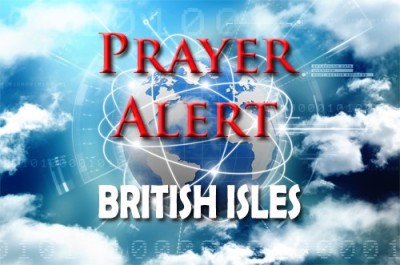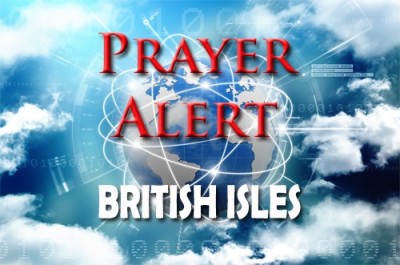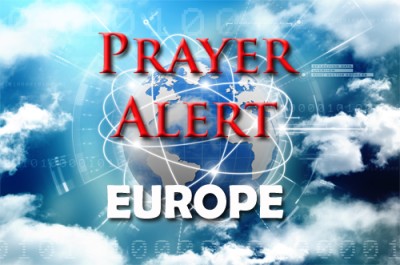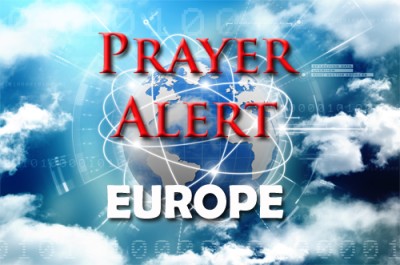Ed Miliband pledges to ban fracking
03 Oct 2025Energy secretary Ed Miliband has pledged to permanently ban fracking, calling it dangerous and deeply harmful, as he urged Labour activists in Liverpool to embrace clean energy as the future. He argued that fracking does nothing to lower bills, create sustainable jobs, or meet climate commitments, but damages the environment. Miliband contrasted Labour’s stance with Reform UK, who advocate expanded fossil fuel extraction, accusing them of betraying future generations. He described Reform as 'science-denying, poverty-driving extremists' and urged voters to reject their policies. Fracking, briefly permitted under Liz Truss before being banned again by Rishi Sunak, involves injecting fluid underground to release gas, a method widely criticised by environmental groups. Miliband tied Labour’s green vision to economic renewal, insisting clean energy is Britain’s best opportunity for job creation in decades, as well as the only sustainable solution to high energy bills.
Gas and electricity bills for millions across England, Scotland, and Wales rose 2% this week under Ofgem’s new price cap, bringing the typical annual bill to £1,755. With household debt to suppliers at a record £4.4bn, campaigners warn vulnerable families face another harsh winter. Energy UK says current support, such as emergency vouchers and debt write-offs, varies widely and is insufficient. They urge the Government to establish a long-term targeted scheme, potentially funded by taxation, to close the 'fuel poverty gap’. The Government points to measures including the Warm Home Discount, offering £150 off for one in five households, and promises a major home upgrade programme to improve energy efficiency in five million homes. Pensioners on lower incomes will also receive restored winter fuel payments after a U-turn. Ofgem is considering a debt relief support scheme to address unpayable arrears.
Former president Nicolas Sarkozy has been convicted of criminal conspiracy and sentenced to five years in prison, marking a historic and dramatic moment in French politics. The Paris court ruled that he engaged in an attempted ‘corruption pact’ with Muammar Gaddafi’s regime to secure millions in illegal funding for his 2007 presidential campaign, though it could not establish whether the money was actually transferred. The case underscores how corruption can erode citizens’ trust in leadership. Sarkozy, who maintains his innocence, also faces a €100,000 fine and will begin serving his sentence despite pending appeals, a rare judicial decision in France. The ruling has poured more fuel on France’s fractious politics; Marine le Pen, who was convicted of embezzlement in March, suggested the ruling was politically motivated, while others see it as proof that even powerful figures can be held accountable. Sarkozy, already convicted twice before, remains an influential figure, still consulted by current leaders navigating France’s volatile political landscape.
Billionaire and former prime minister Andrej Babis is poised for a political comeback as his ANO party leads polls ahead of the October 3-4 elections. Having shifted from a liberal to a national-conservative position, Babis is promising voters financial relief and protection from external pressures such as immigration and climate policies. Yet his return to power would be fraught with complications. ANO is expected to fall short of a majority, forcing him to seek support from far-right or far-left allies who advocate leaving the EU and NATO – a stance at odds with his own pledge to remain. He also faces personal challenges, including a renewed fraud trial and a significant conflict of interest over his vast business empire, Agrofert, which receives significant EU subsidies. His alliances with figures like Hungary’s Viktor Orbán underscore his anti-Brussels stance, but navigating extremist demands while maintaining pro-Western ties may prove his toughest balancing act yet.
Gaza: Hamas likely to reject Trump’s peace plan
03 Oct 2025A senior Hamas leader has said the group is likely to reject Donald Trump’s peace plan for Gaza, arguing it favours Israel while ignoring Palestinian concerns. The plan requires Hamas to disarm, surrender its weapons, and release all hostages at once - conditions the group deems unacceptable. It also proposes an International Stabilisation Force, which Hamas views as a foreign occupation. While Benjamin Netanyahu publicly accepted the plan, he has already contradicted key provisions, insisting Israel must retain a military presence in Gaza and pledging to resist a Palestinian state. Palestinians in Gaza expressed desperate support for the proposal - not out of agreement with its terms, but in hopes of ending war, devastation, and famine. Critics warn that rejection could allow Israel to intensify its campaign with international backing. More than 66,000 deaths have been reported in Gaza since October 2023.
Iran: offering hope to young people
03 Oct 2025Generation of Hope, a SAT-7 PARS youth programme, has returned for its second season with a mission to uplift and support young people in Iran and beyond. The show, hosted by 16-year-old Ilya in London and by Hanieh and Nina in Türkiye, provides a platform for teenagers and young adults to explore vital issues such as identity, mental health, self-harm, and friendship. During the June war between Iran and Israel, the programme shifted to a more prayerful tone, reflecting the anxieties of viewers and offering a safe space for expression. Now it continues to blend thoughtful conversations with light-hearted games, aiming to bring both joy and encouragement. For Ilya, who left Iran due to persecution but found faith in the UK, hosting is a powerful way to share Christ’s hope. His own journey was inspired by his mother’s transformation through faith. He says, ‘People are hopeless; they don’t know what to do. We try to encourage them to hold onto faith, and to the hope that God will help Iran.’
Afghanistan has entered near-total isolation after the Taliban government ordered a nationwide communications shutdown, drastically reducing connectivity to less than one percent of normal levels. The move follows weeks of restrictions on fibre optic networks, which officials justified as measures to prevent ‘vice’. Internet watchdogs described the blackout as ‘comprehensive’, warning of severe consequences for daily life, including banking, trade, and basic communication. Journalists reported losing contact with Kabul soon after the order was enacted. Provincial spokesmen confirmed that fibre optic service had already been banned in several northern and southern provinces earlier this month. While the Taliban had previously highlighted the 9,350-kilometre fibre network as a tool for economic development, the restrictions now threaten to deepen Afghanistan’s isolation and hinder essential services. Since retaking power in 2021, the Taliban have increasingly enforced sweeping limitations in line with their strict interpretation of Islamic law, leaving citizens with few avenues for connection to the outside world.
Indonesia’s president, Prabowo Subianto, has defended his ambitious free meals programme after thousands of cases of food poisoning raised public concern. Launched in January, the initiative provides meals for children and pregnant women; it has already reached 30 million, with a target of 83 million by year’s end. While 6,000 cases of poisoning have been recorded in 70 separate incidents - two-thirds since August - Prabowo pointed out that these represented only 0.00017 percent of all meals served. He acknowledged shortcomings, but stressed the programme’s benefits in reducing childhood stunting, improving nutrition, and creating jobs for local farmers and fishermen. He has now ordered new safety measures, including rapid testing equipment, sterilisers, water filters, and CCTV monitoring for kitchens. The National Nutrition Agency has already shut down noncompliant facilities. Despite the programme’s promise, critics question its fiscal sustainability, as next year’s budget is projected to triple.







